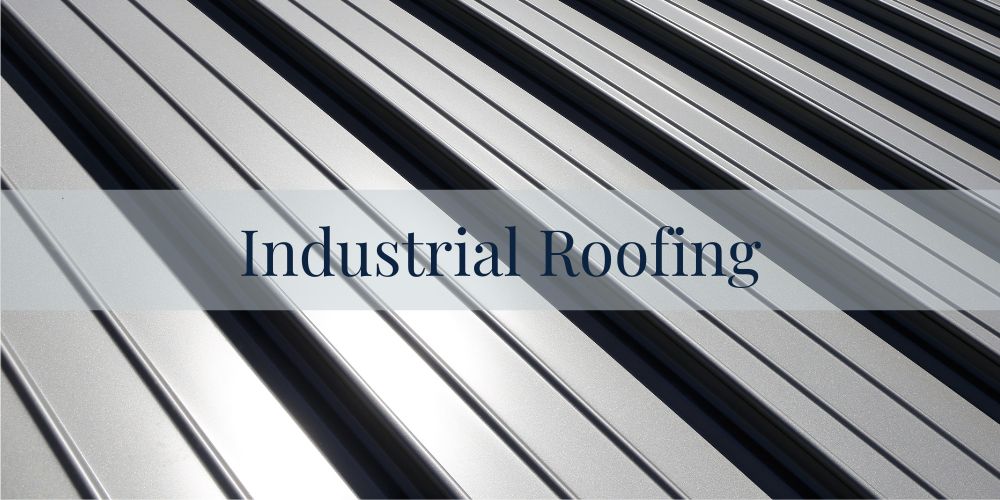Commercial Roofing New York provides industrial roofing across New York to protect factories, warehouses, and manufacturing facilities from weather, moisture, and operational risk. Industrial roofing is the installation of heavy duty roof systems such as metal, modified bitumen, and single ply membranes designed to perform in New York’s demanding industrial environment. This allows Commercial Roofing New York to deliver long term durability and uninterrupted facility operation for industrial properties. Commercial Roofing New York builds industrial roofs that withstand New York’s UV exposure, heavy rain, freeze thaw cycles, wind loads, and rooftop equipment traffic. These systems resist chemical exposure, structural stress, and water intrusion common in large scale facilities. Commercial Roofing New York uses industrial roofing to keep critical operations protected, compliant, and running without disruption.
How Does Industrial Roofing Protect New York Facilities From Moisture, Chemical Exposure, and Structural Stress?
New York’s industrial buildings operate under extreme roof conditions that go far beyond typical commercial use. Large roof spans collect massive volumes of rain and snowmelt, while exhaust systems, chemical emissions, and rooftop equipment expose roofing materials to constant contamination and mechanical stress. Freeze-thaw cycling then forces trapped moisture into seams, fasteners, and insulation, turning small defects into facility-threatening failures. We design industrial roofing systems to control those forces at the assembly level. Heavy-duty membranes, reinforced seams, and corrosion-resistant metal panels prevent water and chemicals from penetrating the roof surface. By managing drainage, vapor movement, and structural loading as part of a single engineered system, we keep New York’s industrial facilities protected from leaks, corrosion, and energy loss. Commercial Roofing New York engineers industrial roofs to withstand constant equipment access, thermal movement, and environmental exposure. The systems we install are built to resist puncture, tolerate chemical contact, and remain watertight despite expansion, contraction, and vibration. That allows factories, warehouses, and manufacturing plants to operate without interruption, even under New York’s harsh climate conditions.
What Is Industrial Roofing and How Is It Used in New York?
Industrial roofing is the installation of heavy-duty roof systems designed to protect large-scale facilities from weather, moisture, and operational stress. These systems may include metal roofing, modified bitumen, or reinforced single-ply membranes depending on the building’s exposure and usage. In New York, we use industrial roofing to safeguard facilities that face chemical exposure, high rooftop traffic, and extreme environmental loading. By selecting and engineering the right materials for each facility, we ensure industrial buildings remain watertight, compliant, and fully operational year-round.
These industrial roof system components produce the following performance outcomes under New York conditions:
- Reinforced membranes and metal panels → resist chemical and moisture attack → roof surfaces do not degrade under exhaust and runoff
- Multi-layer seam reinforcement → blocks moisture migration → water cannot spread beneath the roof
- Corrosion-resistant coatings and alloys → prevent oxidation → chemical exposure does not weaken fasteners or panels
- High-load roof assemblies → support heavy equipment → structural deflection does not crack waterproofing layers
- Engineered drainage paths → evacuate rain and snowmelt → standing water does not build hydrostatic pressure
- Vibration-tolerant attachments → absorb equipment movement → mechanical stress does not open seams
Have a question about an upcoming project?
How Does Industrial Roofing Handle Chemical Fallout, Heavy Runoff, and Mechanical Abuse on New York Facilities?
Industrial roofs in New York are exposed to stress that most commercial systems never see. Large roof fields concentrate rain and snowmelt into long drainage paths, while exhaust plumes, grease vapors, and airborne chemicals settle directly onto membranes and metal panels. At the same time, maintenance crews, cranes, and rooftop machinery apply repeated point loads that fatigue seams and fasteners. We build industrial roofing systems that control all three forces at once instead of letting them interact and cause failure. We design membranes, panels, and seams to resist chemical attack while maintaining structural continuity. Chemically stable surfaces prevent exhaust residues and industrial fallout from softening or dissolving the waterproofing layer, while reinforced seams and flashings block runoff from driving contaminants into the roof assembly. Drainage layouts are engineered to move large water volumes quickly so chemical-laden runoff cannot sit on the roof long enough to penetrate seams or corrode metal. Commercial Roofing New York also engineers industrial roofs around mechanical stress. Reinforced attachment zones, heavy-gauge panels, and protected membrane paths allow equipment loads and foot traffic to be absorbed without tearing seams or crushing insulation. That prevents vibration, loading, and repeated access from turning localized wear into building-wide moisture and corrosion damage across New York’s most demanding industrial facilities.
- Chemical-resistant membranes and coatings → airborne exhaust and industrial fallout → waterproofing does not soften, swell, or degrade.
- High-capacity drainage paths → large roof runoff volumes → contaminated water does not pond or infiltrate seams.
- Reinforced seams and flashings → freeze-thaw and chemical-laden moisture → joints remain sealed instead of splitting.
- Heavy-duty panels and attachment systems → rooftop equipment loads and vibration → insulation and fasteners are not crushed or loosened.
- Engineered load distribution → repeated maintenance traffic → localized wear does not propagate into system-wide failure.
When Do New York Industrial Roofs Need Professional Assessment?
If your facility has persistent ponding, chemical staining, seam fatigue, or corrosion around equipment bases, New York’s industrial exposure may already be compromising the roof system. Exhaust residue, freeze-thaw cycling, and constant mechanical vibration slowly weaken membranes, fasteners, and metal panels, allowing moisture and contaminants to move into insulation and structural decks. We evaluate how your industrial roof is handling chemical contact, thermal movement, drainage flow, and equipment loading under real New York operating conditions. If the system is beginning to lose its protective barrier, we can pinpoint where deterioration is occurring and determine the precise corrective action before production, inventory, or structural integrity is put at risk.

